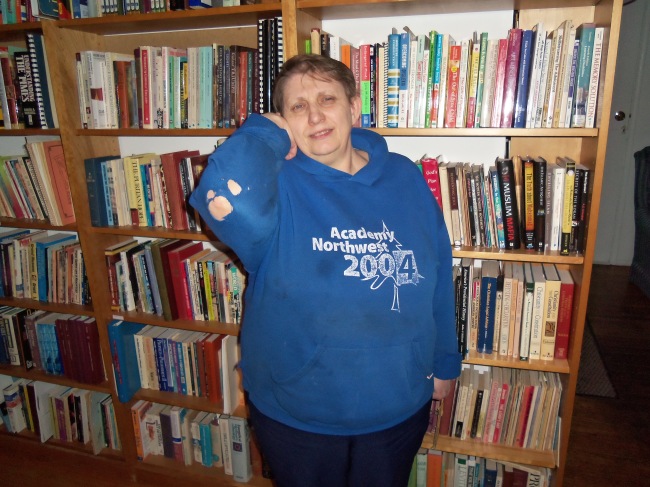One -It’s Legal
In the State of Washington a parent who is homeschooling independently (regulated under the public school sector) must:
- Qualify (45 qt. Hrs. of college OR work with a certified teacher equivalent of 1 hr a week OR take a parent qualifying course OR be deemed qualified by Superintendent of Schools).
- File annual “Declaration of Intent” (ages 8-18).
- Teach the eleven subjects for Grades K-8 (reading, writing, language, spelling, math, science, health, social studies, history, art and music appreciation and occupational education). Or follow the high school graduation requirements for your school district.
- Assess annually (standardized or non-test assessment) (ages 8-18).
With Private Extension Program (regulated under the private sector) a parent must:
- Enroll in program and child meets with the teacher a minimum of 1 hour a week average.
- Teacher plans with parent and evaluates progress.
For the more information regarding homeschool laws in Washington check with www.washomeschool.org. If you are planning a move or currently live in another state, check what other states require by visiting: www.hslda.org.
Two -It Works
Dr. Brian Ray, PhD has conducted research and compiled research done by others to establish that homeschooling works. These studies have looked at different angles – academics, socialization, cost etc. Students who homeschool score high on standardized tests in contrast to public school students.
Home Education Reason And Research
Common Questions and Research-Based Answers about Homeschooling
by Brian D. Ray, Ph.D. (available in Store on website below)
National Home Education Research Institute
www.nheri.org
Home School Legal Defense Association
www.hslda.org
More and more colleges accept homeschoolers; some even recruit them especially.
Three – It’s Individual
One reason public and even private school does not work for everyone is that we are all different in abilities, interests and learning styles.
- In homeschooling each family can customize an educational program that fits the family and each child.
- You can consider learning styles and learning difficulties.
- You can adjust the schedule according to your family’s needs.
Four -It’s Social
- The family unit is the ideal place to develop social skills.
- What kind of socializing do children get in a room of their peers? Where else in life do we associate with only people our own age?
- There are many opportunities available for homeschoolers to socialize with people outside the home: homeschool band or choir; YMCA physical education classes; sports teams; church groups; scouts etc.
Five – It (Can Be) Inexpensive
Because homeschooling is individual, I can only say that it CAN BE inexpensive. If you choose a very structured, “school-like” homeschool, it can be very costly. However, there are ways to do it with less expense. Options are virtually endless.
- Used curriculum sales.
- Library Materials / living books.
- Multi-level curriculum.
- Field trips / free places and events, seasonal memberships.
- Support groups.
- Homeschool Cooperatives.
- Internet websites.
Maggie Dail, M.A. has been working with homeschoolers since 1994 through Academy Northwest / Family Academy (www.familyacademy.org). She instructs Family Academy’s online parent training course. She began working with International Christian Association of Neurodevelopmentalists in 2003, becoming certified in 2007. (ICAN – www.icando.org) Now in 2013 she is beginning to work with homeschooling families through Family Academy Online. Maggie and her husband, Ronnie operate Center for Neuro Development. Visit their website www.centerforneurodevelopment.com) where you can find new curriculum items and you can e-mail Maggie for a current list of used items.
 Old
Old
